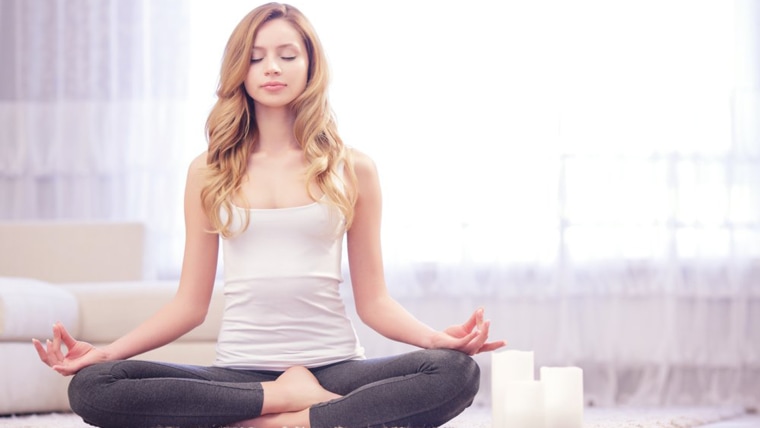After receiving a diagnosis of degenerative disc disease, Shawn Stevenson wanted to improve his overall health. He changed his diet and exercise routine, but it soon became clear that a good night’s rest remained as important as working out and eating right. This realization became a passion and he found himself reading study after study about sleep.
What he learned became the basis for the book, “Sleep Smarter: 21 Essential Strategies to Sleep Your Way to a Better Body, Better Health, and Bigger Success.” While he provides 21 ways to get better sleep, he admits that most people won’t use every tip — they’ll mix and match what works for them. While some of the tips include traditional advice, such as having a good sleep environment, others include lifestyle changes that bolster sleep quality. He shares a few with TODAY:

1. Get shut eye at the right time
“Timing of sleep is like timing in investment. It doesn’t matter how much you invest, it is about when,” he says.
When should people catch Zs? Between 10 p.m. to 2 a.m.
According to research, the body secretes the most human growth hormone during this time, which is essential for regulating muscle growth, bolstering the immune system, strengthening the bones, among other things. Sleeping during this time means the body produces the perfect amount of hormones.
It's also during this time that the body also produces the most melatonin, a hormone that regulates sleep and wake cycles. Assuring that you're in bed at this time keeps melatonin production in check.
“It really supports our normal sleep cycles. It is not about getting so many hours, [it’s about] getting full normal sleep cycle,” Stevenson says.
Related: Women are more likely to have sleep problems than men
2. Let the sunlight in
When waking in the morning, it’s important to see the sunlight. Being exposed to natural light primes the body to be awake — just like being in the dark encourages the production of melatonin.
“Exposure to natural sunlight to the early part of the day literally translated to lower cortisol levels at night,” Stevenson says.
Cortisol, a stress hormone, has been linked to sleep disruptions. By getting lots of light in the morning, the cortisol peaks in the early part of the day and lessens throughout the day, meaning there’s not too much of it when it’s time to snooze.
The other benefit of sunshine? "Sunlight exposure increases the production of serotonin.”
Having enough serotonin improves sleep quality. While serotonin makes people feel happy, content, and alert, it also aids in the production of melatonin, which people need at night to feel sleepy.
Sunlight is “one of the most amazing [things]. It is free; it’s so accessible,” Stevenson says.
Related: How your sleep position can impact your health
3. Leave work at work
“One of the worst things we can do is bring our work to bed ... the mind kicks on and the mind is racing,” he says.
All this chatter means the brain can’t relax enough to fall asleep. Stevenson says that mindfulness practices, such as yoga and meditation, can help people quiet their brains and get better sleep.

“I really see this as being a necessity today because it helps with sleep quality. A lot of people struggle to calm down at night,” he says.
There’s some science behind it: He says a study found people who experienced just eight weeks of meditation fell asleep easier, experienced more uninterrupted sleep, had improved overall sleep quality, and felt less depressed.
“Meditation can actually improve sleep quality."